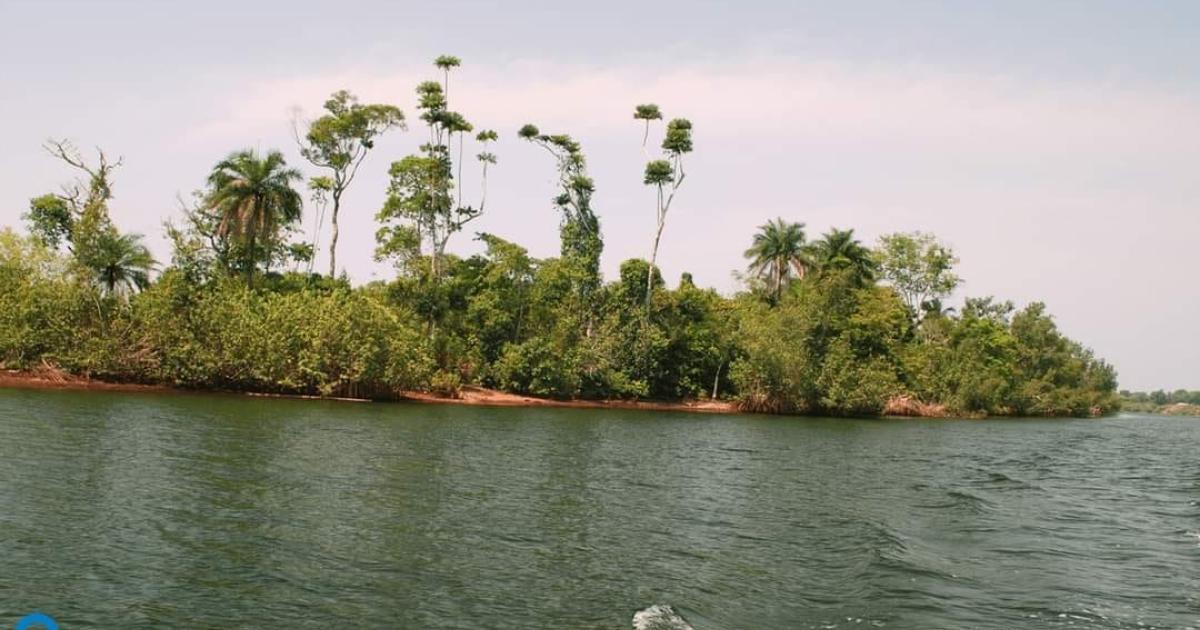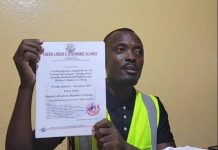Africa-Press – Liberia. A proposal from Cavalla Resources for the construction of a conveyor system over the Marshall Wetlands has been deemed unquestionably unsafe and ecologically unfriendly for the future of the wetland.
The warning comes as eleven environmental groups, including Conservation International Liberia, claim that the company is considering building a conveyor over the Marshall Wetlands to move iron ore from its mines in Grand Bassa County.
“We understand that Cavalla Resources, a company that inherited the Mineral Development Agreement from BHP Billiton in 2016, is considering the possibility of constructing a conveyor belt system across the Marshall Wetlands to transport iron ore from its mines to shore for international markets. In addition, the company plans to stockpile iron ore on 500 acres of land in Bassa Point, within the wetlands,” the group forewarned in a letter to the Minister of Mines and Energy, Gesler E. Murray.
“While we recognize the need to promote economic prosperity from the extractive sector such as mining, all intents and purposes of the conveyor system across the Marshall Wetlands are unquestionably dangerous, environmentally unfriendly, and will have a significant negative impact on this very important wetland.”
In Liberia, the wetlands of international significance are Marshall in Margibi County, Mesurado in Montserrado County, Gbedin in Nimba County, Lake Piso in Grand Cape Mount County, and Kpatawee in Bong County. Liberia became a party to the Ramsar Convention on November 2, 2003. As a signatory to the Convention, which is an international treaty for the conservation and use of wetlands, Liberia is under obligation to protect and sustainably manage wetlands, especially those declared as Ramsar Sites of International significance.
These wetlands are protected by Ramsar Convention, an international treaty for the conservation and use of wetlands, which Liberia party. The Marshal wetland was designated as a Ramsar Site in August 2006 as part of the government plan to protect water resources, avoid biodiversity collapse and improve ecosystem services.
It is Liberia’s second largest wetland, located in Marshall District; Margibi County but now under serious threat from both the Atlantic Ocean and unsustainable use by the local communities. This decision is of international importance given that the Marshall Wetlands predominantly contains mangroves with mature trees reaching up to 30 meters.
The Marshall Wetlands is also one of the 14 Proposed Protected Areas (PPA) identified by the government in 2008 as part of Liberia’s Protected Area Network. Marshall Wetland has six islands and three rivers.
As a result, Cavalla Resources’ plan consideration of the wetland for a conveyor system would undermine the government’s commitment to the Ramsar Convention, as well as the numerous investments by international partners in protecting and maintaining this biodiversity hotspot, the group said. They added that previous developers flagged the Marshall Wetland as a no-go area and considered a long conveyor or dedicated haul road to Buchanan port as the only viable options.
The group then urged the Minister of Mines to reverse any decisions which would see the project going ahead as planned by Cavalla Resources as said “action endangers the already immensely threatened Marshall Wetlands, its rich biodiversity, and the unique ecosystem services it provides.”
“As conservation organizations in Liberia and strategic partners to the government, we call on your office to rescind all decisions or deny any/all applications to construct the conveyor system in the Marshall wetlands by Cavalla Resources or any other private firm as this action endangers the already immensely threatened Marshall Wetlands, its rich biodiversity, and the unique ecosystem services it provides.”
Meanwhile, the group has said that in the last three decades, more than any other time in Liberia‘s history, poorly regulated human activities have significantly degraded these ecosystems, resulting in an unprecedented loss of biodiversity, and it would be worse if Cavalla Resources is allow to construct a conveyor belt systems on the wetland.
The move would greatly endanger the wetland which serves an important habitat for threatened species such as the African dwarf crocodile, Ridley turtle, leatherback turtle, green turtle, West African slender-snouted crocodile, and migratory birds, the group said.
“Further to its decision in 2006 and recognizing the need to enhance protection of this biodiversity hotspot and to secure the many benefits it provides to local people, the Government of Liberia has commenced activities to formally gazette the Marshall Wetlands Proposed Protected Area as a Protected Area,” the group reminded the Murray, the Minister of Mines.
“This is also due to the intense and increasing destruction of the mangroves, pollution of the wetland, impact from sand mining and dredging, as well as other human interferences.”
The letter was signed by Conservation International Liberia, Fauna & Flora International Liberia, Libassa Ecolodge, Liberia Chimpanzee Rescue & Protection, Liberia National Tourism Association, and Liberian Youth for Climate Action.
Other signatories are Environmental Justice Foundation, Partners in Development, Society for the Conservation of Nature of Liberia, Sustainable Development Institute, Universal Outreach Foundation, and Wild Chimpanzee Foundation.
For More News And Analysis About Liberia Follow Africa-Press






